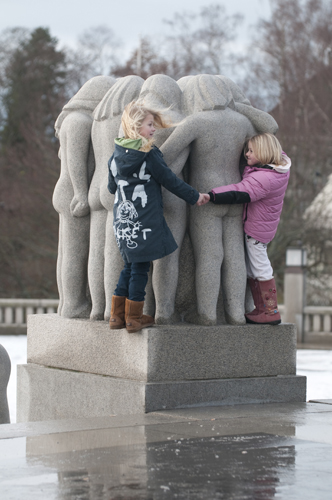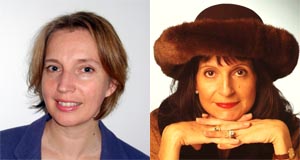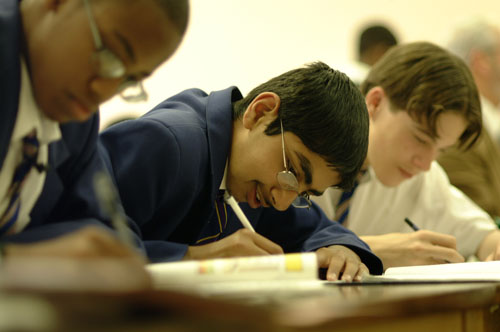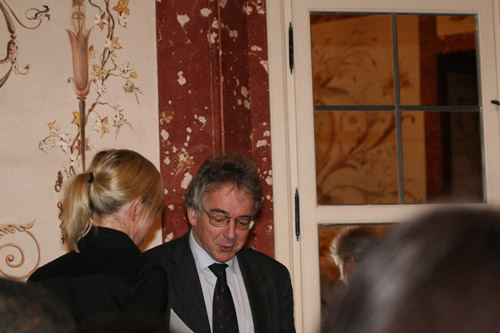
Por que eu nunca fui para a Noruega, Eu me pergunto como eu ver as imagens de tirar o fôlego deste país incrível na pesquisa do Google. I e-mail o meu melhor amigo, Especialista norueguês e talentoso arquiteto, Maddy Vigeland, and ask her to share with me a Norwegian view for my new education post.
“A few things come to mind,” Maddy emails back. “In addition to skiing, the fjords — miles and miles of dramatic landscape, salmon/lox, something called lutefisk. Em seguida, folk songs, the bravery of Leif Ericson, the adventures of Thor Heyerdahl and his Kon-Tiki, the sadness of Edvard Munch paintings, the bold and brutal sculptures of Gustav Vigeland, the outrageous integration of landscape with culture in Oslo’s new ballet and opera house by Snohetta architects. Também, Liv Ullman, Sonje Henie, and perhaps the most distinguishing characteristic of all — the general agreement by all Norwegians on the way to live — focused on the quality of life.”
Thank you Maddy Vigeland. I’m hooked, but before I will commit to admitting I’m booked, allow me to share an educational view of Norway from my newer Norwegian friend, Dr. Kirsten Immersive Are, distinto professor na Universidade de Oslo Faculdade de Educação.
Que tipo de sistema educacional vai permitir que um país tenha as habilidades de pessoas necessárias para competir globalmente?
The latest findings from large scale assessment and knowledge reviews support conclusions that comprehensive education is most successful. In comprehensive education, students acquire knowledge and experience within demographically diverse learning milieus and face a multitude of expectations that are both cultivating and qualifying. Schools where students are grouped according to their abilities and aptitudes, are not as effective.
Qual é a sua visão de testes padronizados?
Standardized testing informs policy makers and practitioners about some of the outcomes of education. No entanto, these tests are limited in scope in measuring the quality of teaching and learning in schools. Some assessment systems, like PISA, measure competencies of large populations, entre 4,500 e 10,000 15-16 year old students in each country. These tests might stimulate debates on what is the intellectual capability of students around the globe, but are not so good at measuring the content and methods of teaching.
Se generalização é possível, what elements are missing from the current systems, such as critical thinking or other dimensions of human interest and intelligence?
The OECD studies concentrate on the human competencies that are needed in a learning society. This might lead to an orientation to productive learning and performance. No entanto, individual capacity as well as communication is also dependent on receptive skills, which develop through understanding, interpretation and reflection. Essas habilidades não são facilmente mensuráveis, mas ainda são essenciais para se tornar um cidadão educado.

O que pode ser feito para melhor atender o bem-estar emocional e potencial intelectual do indivíduo, que parecem estar sofrendo sob o sistema atual?
A carga total de dirigentes escolares é promover sistemas de ensino que são baseadas em valores fundamentais como a dignidade humana e respeito. Isto significa que enfatizam a responsabilidade, em vez de sistemas de responsabilização e avaliação de forma de acordo com os objetivos gerais de escolaridade. É importante que o sistema está na escola “duas pernas”: em um currículo bem desenhado e avaliação para a aprendizagem. Para o momento, decisores políticos têm sido mais preocupados com uma perna, para criar expectativas sobre o desempenho através de sistemas de avaliação e prestação de contas. Esquecem-se que um sistema bem trabalhando depende de boas estruturas, enquadrado por reforma sistêmica e do currículo.
Na Noruega, há uma tradição de formular diretrizes curriculares nacionais, que são base ampla, ainda fornecer um quadro para o que é de cerca de escolaridade. As orientações estão focados em objetivos centrais e assunto que pressupõem ensino pensativo para ser realizado bem. Esta abordagem é deliberativo em caráter e garante que os manuais de ensino e prescrições, sejam eles científicos ou político, são ajustadas às práticas deliberativas nas escolas. Ênfase na deliberação irá abordar tanto o bem-estar emocional e o potencial intelectual do indivíduo.
A partir de uma perspectiva mais ampla, A definição de excelência educacional de seu país ter em conta a qualidade de vida dos indivíduos e de uma sociedade, incluindo as suas realizações artísticas e culturais?
The most prominent example of this approach is the Finish educational system. Na Finlândia, a new national curriculum will be implemented in a few years, giving priority to aesthetic subjects. The curriculum is comprehensive, yet students in Finland perform very well in large scale assessment, tais como PISA, so a comprehensive curriculum might stimulate good results/outcomes. The General Curriculum in Norway describes a comprehensive curriculum as well and the integrated human being as one that is both cultivated and qualified. Here the tradition is to guarantee not only good results on national tests, but also a school system where students enjoy themselves and experience a good learning environment. I think joy and hard work must go hand in hand.
World Wisdom from Norway
Standardized tests do not measure the quality of teaching or the quality of learning in schools. There is too much emphasis in our education systems on assessment and accountability instead of on curriculum and responsibility. Dar aos professores mais liberdade para adaptar as orientações para as necessidades dos estudantes. A definição de excelência educacional na Noruega: um currículo abrangente, bem como na Finlândia, onde o aluno torna-se tanto cultivada e qualificado. Joy e trabalho duro deve andar de mãos dadas.

Photos courtesy of Norwegian Embassy.
Em A Pesquisa Global para a Educação, juntar C. M. Rubin e líderes de renome mundial, incluindo Sir Michael Barber (Reino Unido), Dr. Leon Botstein (US), Dr. Linda, Darling-Hammond (US), Dr. Madhav Chavan (Índia), Professor Michael Fullan (Canadá), Professor Howard Gardner (US), Professor Yvonne Hellman (Holanda), Professor Kristin Helstad (Noruega), Professor Rose Hipkins (Nova Zelândia), Professor Cornelia Hoogland (Canadá), Senhora. Chantal Kaufmann (Bélgica), Professor Dominique Lafontaine (Bélgica), Professor Hugh Lauder (Reino Unido), Professor Ben Levin (Canadá), Professor Barry McGaw (Austrália), Professor R. Natarajan (Índia), Sridhar Rajagopalan (Índia), Sir Ken Robinson (Reino Unido), Professor Pasi Sahlberg (Finlândia), Andreas Schleicher (PISA, OCDE), Dr. David Shaffer (US), Dr. Kirsten Immersive Are (Noruega), Chanceler Stephen Spahn (US), Yves Theze (Francês Lycee EUA), Professor Charles Ungerleider (Canadá), Professor Tony Wagner (US), Professor Dylan Wiliam (Reino Unido), Professor Theo Wubbels (Holanda), Professor Michael Young (Reino Unido), e Professor Minxuan Zhang (China) como eles exploram as grandes questões da educação imagem que todas as nações enfrentam hoje. A Pesquisa Global para Educação Comunitária Página
C. M. Rubin é o autor de duas séries on-line lido pelo qual ela recebeu uma 2011 Upton Sinclair prêmio, “A Pesquisa Global para a Educação” e “Como vamos Leia?” Ela também é autora de três livros mais vendidos, Incluindo The Real Alice no País das Maravilhas.
Siga C. M. Rubin no Twitter: www.twitter.com/@cmrubinworld






Comentários Recentes